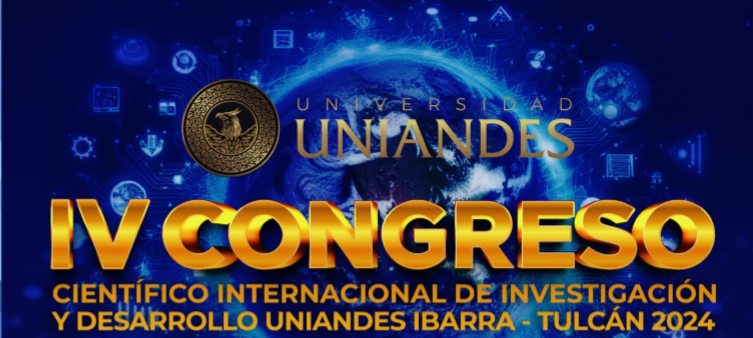Importance of exclusive breastfeeding in the first six months of life of the newborn baby
Abstract
Breastfeeding is an important indicator of a society's well-being. According to WHO, if all mothers exclusively breastfed their children for the first six months, many children's lives could be saved. In addition to the nutritional benefits, exclusive breastfeeding helps prevent various diseases and reduces the risk of obesity and diabetes. During the first few days, the newborn consumes colostrum, which contains immune components that protect the baby. The objective of this research is to describe the current status and importance of exclusive breastfeeding. It also has benefits for the mother, such as reducing postpartum bleeding, as well as the risk for diseases like ovarian and breast cancers. Likewise, breastfeeding has proven that it contributes to the family economy by reducing the costs of health care and baby food products . Supporting and educating mothers about the importance of breastfeeding is vital. Breast milk also protects the baby from various diseases and reduces the risk of leukemia, sudden death, allergies, obesity, and diabetes.
Keywords: breastfeeding, nutrients, diseases, malnutrition, colostrum
Downloads
References
Brahm P, Valdés V. Beneficios de la lactancia materna y riesgos de no amamantar. Rev chil pediatr. 2017 [citado 2025 Dic 18]; 88( 1 ): 07-14. Disponible en:
http://www.scielo.cl/scielo.php?script=sci_arttext&pid=S0370-41062017000100001&lng=es
Oribe M, Lertxundi A, Basterrechea M, Begiristain H, Santa Marina L, Villar María. Prevalencia y factores asociados con la duración de la lactancia materna exclusiva durante los 6 primeros meses en la cohorte INMA de Guipúzcoa. Gac Sanit. 2015. [citado 2025 Dic 18]; 29( 1 ): 4-9. Disponible en: http://scielo.isciii.es/scielo.php?script=sci_arttext&pid=S0213-91112015000100002&lng=es
Ecuador: Ministerio de Salud Pública. Normas para la implementación y funcionamiento de lactarios institucionales en los sectores público y privado en el Ecuador. Quito: Ministerio de Salud Pública del Ecuador; 2011.
Organización Mundial de la Salud. Estrategia mundial para la alimentación del lactante y el niño pequeño. Ginebra. OMS; 2002.
Aréstegui RU. Lactancia materna exclusiva: ¿siempre? Revista Peruana de Ginecología y Obstetricia. 2014. [citado el 23 de febrero de 2024];60(2):171–6. Disponible en:
http://www.scielo.org.pe/scielo.php?pid=S230451322014000200011&script=sci_artte
Aguilar Cordero MJ, González Jiménez E, Álvarez Ferre J, Padilla López CA, Mur Villar N, García López PA. et al . Lactancia materna: un método eficaz en la prevención del cáncer de mama. Nutr. Hosp. 2010 Dic [citado 2025 Dic 18] ; 25( 6 ): 954-958. Disponible en: http://scielo.isciii.es/scielo.php?script=sci_arttext&pid=S0212-16112010000600010&lng=es.
Avalos González MM, Mariño Membribes ER, González Hidalgo JA. Factores asociados con la lactancia materna exclusiva. Rev Cubana Med Gen Integr. 2016 Jun [citado 2025 Dic 18] ; 32( 2 ): 170-177. Disponible en:
http://scielo.sld.cu/scielo.php?script=sci_arttext&pid=S0864-21252016000200004&lng=es .
Sánchez-Artigas R, Fiallos-Brito EJ, Peña-Laurencio AM, Villacrés-Gavilanes SC, Flores-Laguas EE. Factores maternos asociados con el comportamiento de la lactancia materna exclusiva. Rev Ciencias Médicas. 2024 Jun [citado 2025 Dic 18] ; 28( 3 ): . Disponible en: http://scielo.sld.cu/scielo.php?script=sci_arttext&pid=S1561-31942024000300017&lng=es.
Ortega-Ramírez ME. Recomendaciones para una lactancia materna exitosa. Acta pediátrica de México, 2015. [citado 2025 Dic 18] ; 36(2): 126-129. Disponible en:
http://www.scielo.org.mx/scielo.php?script=sci_arttext&pid=S0186-23912015000200011&lng=es&tlng=es .
Cerda Muñoz L. Lactancia materna y gestión del cuidado. Rev Cubana Enfermer. 2011 Dic [citado 2025 Dic 18] ; 27( 4 ): 327-336. Disponible en:
http://scielo.sld.cu/scielo.php?script=sci_arttext&pid=S0864-03192011000400010&lng=es
González Méndez I, Pileta Romero Be. Lactancia materna. Rev Cubana Enfermer. 2002 Mar [citado 2025 Abr 18] ; 18( 1 ): 15-22. Disponible en:
http://scielo.sld.cu/scielo.php?script=sci_arttext&pid=S0864-03192002000100003&lng=es
Naranjo Hernández Y, Rodríguez Mateo M. Lactancia materna exclusiva en los primeros seis meses de vida. Rev Cubana Enfermer . 2021 Sep [citado 2025 Abr 18]; 37(3): Disponible en:
http://scielo.sld.cu/scielo.php?script=sci_arttext&pid=S0864-03192021000300001&lng=es
Monet Álvarez DE, Álvarez Cortés JT, Gross Ochoa VY. Beneficios inmunológicos de la lactancia materna. Rev Cubana Pediatr. 2022 Sep [citado 2024 Abr 19]; 94(3): Disponible en:
http://scielo.sld.cu/scielo.php?script=sci_arttext&pid=S0034-75312022000300004&lng=es
Rivera Ledesma E, Bauta León L, Fornaris Hernández A, Flores Martínez M, Pérez Majendie R. Factores determinantes de la lactancia materna exclusiva: Policlínico Aleida Fernández. 2015. Rev haban cienc méd. 2017 Dic [citado 2024 Abr 19]; 16(6): 879-890. Disponible en: http://scieloprueba.sld.cu/scielo.php?script=sci_arttext&pid=S1729-519X2017000600005&lng=es
Quispe Ilanzo MP, Oyola García AE, Navarro Cancino M, Silva Mancilla JA. Características y creencias maternas asociadas al abandono de la lactancia materna exclusiva. Rev Cubana Salud Pública. 2015 Dic [citado 2024 Abr 19]; 41(4). Disponible en: http://scieloprueba.sld.cu/scielo.php?script=sci_arttext&pid=S0864-34662015000400002&lng=es
Basain Valdés JM, Valdés Alonso MC, Álvarez Viltres M, Miyar Pieiga E, Tase Pelegrin TS. Exceso de peso y obesidad central y su relación con la duración de la lactancia materna exclusiva. Rev Cubana Pediatr. 2018 Dic [citado 2025 Ab 19]; 90(4): e345. Disponible en: http://scieloprueba.sld.cu/scielo.php?script=sci_arttext&pid=S0034-75312018000400007&lng=es
Published
How to Cite
Issue
Section
License
ACCESS AND DISTRIBUTION POLICY
All published articles are open access contributions, which are distributed under the terms of the Creative Commons Attribution-NonCommercial 4.0 License which permits unrestricted non-commercial use, distribution and reproduction in any medium, provided that the primary source of publication is properly cited.




